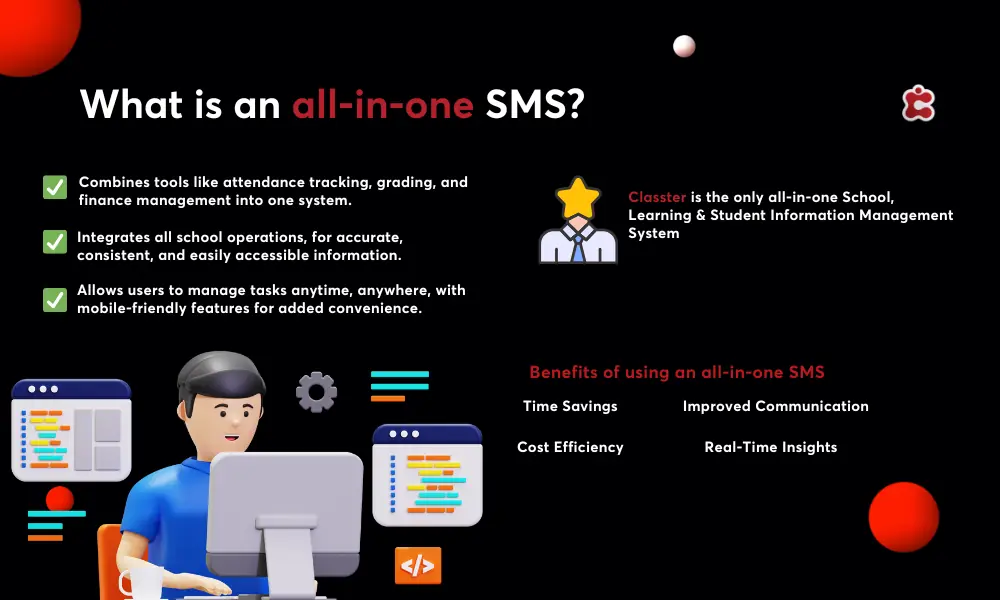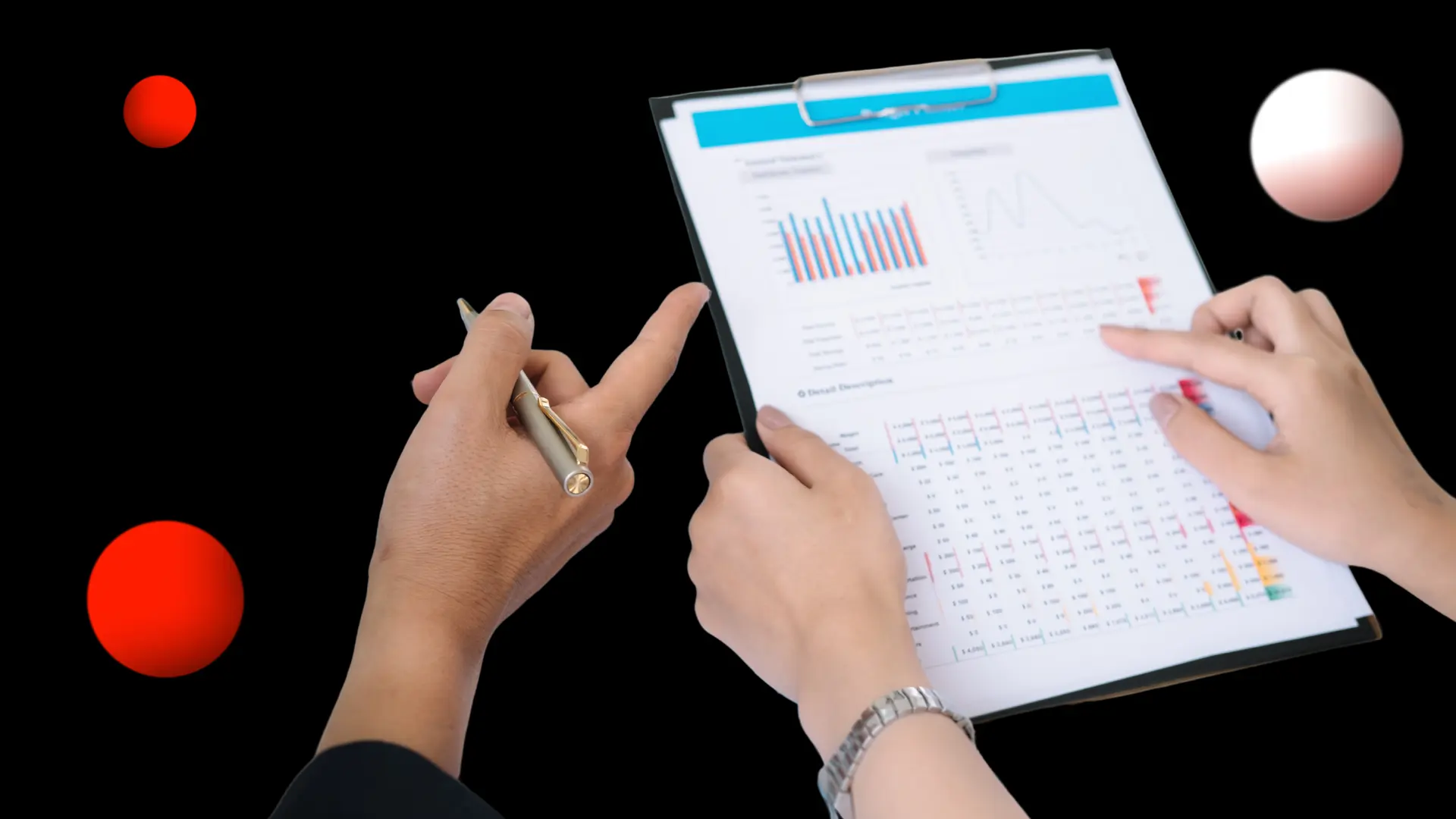When you think about student data, your mind probably goes straight to grades, attendance, and exam results. Useful, sure. But also a bit basic. What if that same data could help spot burnout before it happens, match students with the perfect course, or even shape a more inclusive classroom environment? That’s exactly what can happen in Lithuanian schools.
With the support of School Management Software (SMS), Lithuanian institutions are turning everyday data into actionable insights. Instead of collecting information just for end-of-term reports, they’re using it in real time to personalise learning and support student wellbeing. It’s a shift from reactive to proactive.
We’ll look at seven unexpected ways Lithuanian schools can use SMS to unlock the true power of student data. These aren’t your typical dashboards and graphs. They’re clever, human-centred strategies that put learners first. Let’s take a look.

1. Predicting Dropouts Before They Happen
Every educator has seen it. A student who slowly fades from view. Fewer questions in class. Missed assignments. Spotty attendance. By the time anyone notices the full picture, it’s often too late. But what if schools could see those warning signs earlier, while there’s still time to step in?
That’s precisely what Lithuanian institutions can do with School Management Software. By bringing together data on attendance, academic performance, and student engagement, SMS platforms can highlight patterns that point to a potential dropout risk. Maybe a student’s grades have dipped across multiple subjects. Maybe they’ve been absent more than usual. Or perhaps they’ve stopped logging into the student portal altogether. On their own, these may seem small, but combined, they tell a much bigger story.
With these early signals, staff can act fast. A quick check-in, a supportive conversation, or tailored academic help might be all that’s needed to get a student back on track. It’s a proactive approach that gives institutions the tools to respond before a student disengages completely.
2. Personalising Career Counselling Through Behavioural Insights
Choosing a career path is a big decision, and for many students, it can feel overwhelming. Traditional career counselling often relies on test scores, general interests, or a one-off meeting. But Lithuanian schools can take things a step further by using real-time behavioural insights from their School Management Software to personalise guidance in a whole new way.
Instead of looking at isolated data points, SMS brings together a full picture of each student’s academic performance, subject preferences, online activity, and even participation in extracurriculars. Maybe a student consistently excels in group projects or spends extra time engaging with content in certain modules. These patterns say a lot about where their strengths and passions might lie.
Career counsellors can use this rich insight to offer tailored advice, not just based on what a student says, but on how they actually learn and interact. This leads to more meaningful conversations and more confident decisions about future studies or career paths.
It’s a smart, student-centred approach that helps young people see what’s possible—and feel supported every step of the way.
3. Optimising Lecture Times Based on Student Focus Patterns
We’ve all had that class where no one’s really switched on—heads down, low energy, and not much participation. But what if the problem isn’t the content or the teacher? What if it’s the timing?
Some higher education institutions are starting to rethink their timetables with the help of data from School Management Software. By tracking attendance, participation, and even digital engagement across different times of the day, schools are identifying when students are most alert and focused. For some, it’s mid-morning. For others, later in the afternoon works best.
With these insights, academic teams can tweak lecture schedules to match students’ natural energy patterns. It’s a simple shift, but it can make a huge difference—students retain more, engage better, and actually enjoy the learning experience.
4. Designing More Inclusive Learning Environments
Inclusion doesn’t happen by accident. It takes curiosity, intention, and data. Lithuanian universities are shifting the way they think about accessibility, and it starts with asking a better question: Who might we be leaving out?
Using School Management Software, schools are diving into student performance patterns. Not to rank learners, but to spot where the system itself might be falling short. Are international students consistently underperforming in certain subjects? Are students with part-time jobs submitting more late assignments? These aren’t problems with the students. They’re signals that the learning environment needs to flex.
And that’s exactly what’s happening. With this insight, faculty can redesign course delivery, rethink assessment timing, or offer multiple ways to engage with materials. It’s not about lowering expectations. It’s about removing invisible barriers.
What makes this approach different is that it’s built on real behaviour, not assumptions. The data tells a story, and Lithuanian institutions are learning to listen.
5. Enhancing Student Well-being
Student well-being isn’t just about having a counsellor on campus. It’s about noticing when something’s off, before it becomes a crisis. Smart alerts within their School Management Software to spot early signs of distress.
Here’s how it works. The system quietly monitors patterns like attendance dips, sudden grade drops, changes in online activity, or even a lack of engagement in group work. On their own, these moments might go unnoticed. However, when combined, they can paint a clear picture that a student might be struggling academically, emotionally, or both. Instead of waiting for the student to ask for help, the SMS flags the issue automatically, prompting staff to check in. A tutor might reach out with a friendly message, or student services might step in with support options tailored to that student’s needs.
6. Refining Teaching Methods
In the past, feedback on teaching often arrived too late, weeks after exams, tucked into anonymous forms, and rarely followed up.
SMS allows educators to access real-time engagement data paired with regular feedback surveys. If a teaching method isn’t landing, the data doesn’t hide it. This isn’t about criticising teachers. It’s about helping them teach in ways that actually connect.
Let’s say a lecturer sees that students are rewatching a certain recorded session multiple times. That might be a sign it’s too complex—or perhaps it’s especially engaging. Either way, it’s a chance to reflect and improve.
The beauty of this feedback loop is that it puts students and teachers on the same team. Learning becomes a shared responsibility, not a top-down experience. Lithuanian schools can now show how powerful it can be when teachers don’t have to wait for end-of-term reports to make meaningful changes. They can adapt, refine, and grow in real time. And that’s a win for everyone in the classroom.
7. Connecting Students with Internships
The job market is getting increasingly difficult to navigate. That’s why Lithuanian schools can use School Management Software to give their learners a real advantage, matching them with internships that genuinely fit their goals and skill sets.
Take, for example, the Classter’s Internship Module. With smart features like Match Students with Opportunities, institutions can automatically connect students with internships that align with their academic progress, interests, and strengths.
Schools can also create and manage internships directly within the platform, ensuring every opportunity supports hands-on learning and academic development. Through the Internship Dashboard, students stay organised and engaged by tracking every step of their placement in one place.
From application to completion, Streamlined Workflows make the entire process smoother for both students and staff. Institutions can easily manage Contracts and reduce admin time while staying fully compliant. And with the built-in Logbook, students can reflect on their experience, track learning outcomes, and gain insights that feed back into curriculum planning.
Classter Gives Lithuanian Schools the Data They Need
Behind all these innovative strategies lies a powerful tool: Classter. Lithuanian schools are turning to Classter’s all-in-one School Management Software to collect, connect, and act on student data like never before. From attendance tracking and academic performance to behavioural patterns and wellbeing indicators, Classter brings everything into one central platform, making data visible, useful, and actionable.
With built-in analytics, custom dashboards, and smart alerts, schools can spot trends early, personalise support, and plan ahead with confidence. Whether it’s matching students to internships or refining teaching methods in real time, Classter helps institutions move from guesswork to precision.
If you’re ready to take a more informed, student-focused approach at your own institution, we’d love to show you how. Book a personalised demo today and see how Classter can help your school turn student data into real student success.
FAQ’s
School management software enables Lithuanian schools to collect and analyse student data in real time, going beyond grades and attendance to monitor engagement, wellbeing, and learning patterns. This empowers schools to take proactive steps to support students, from preventing dropouts to tailoring career advice.
Schools can use student data to predict dropouts, optimise class schedules, identify signs of stress, match students with internships, and even design more inclusive learning environments. These uses go far beyond traditional data tracking and reporting.
Classter offers a centralised platform that connects academic, behavioural, and well-being data. With tools like smart alerts, internship tracking, and real-time analytics, it helps Lithuanian institutions can shift from reactive management to proactive student support.

